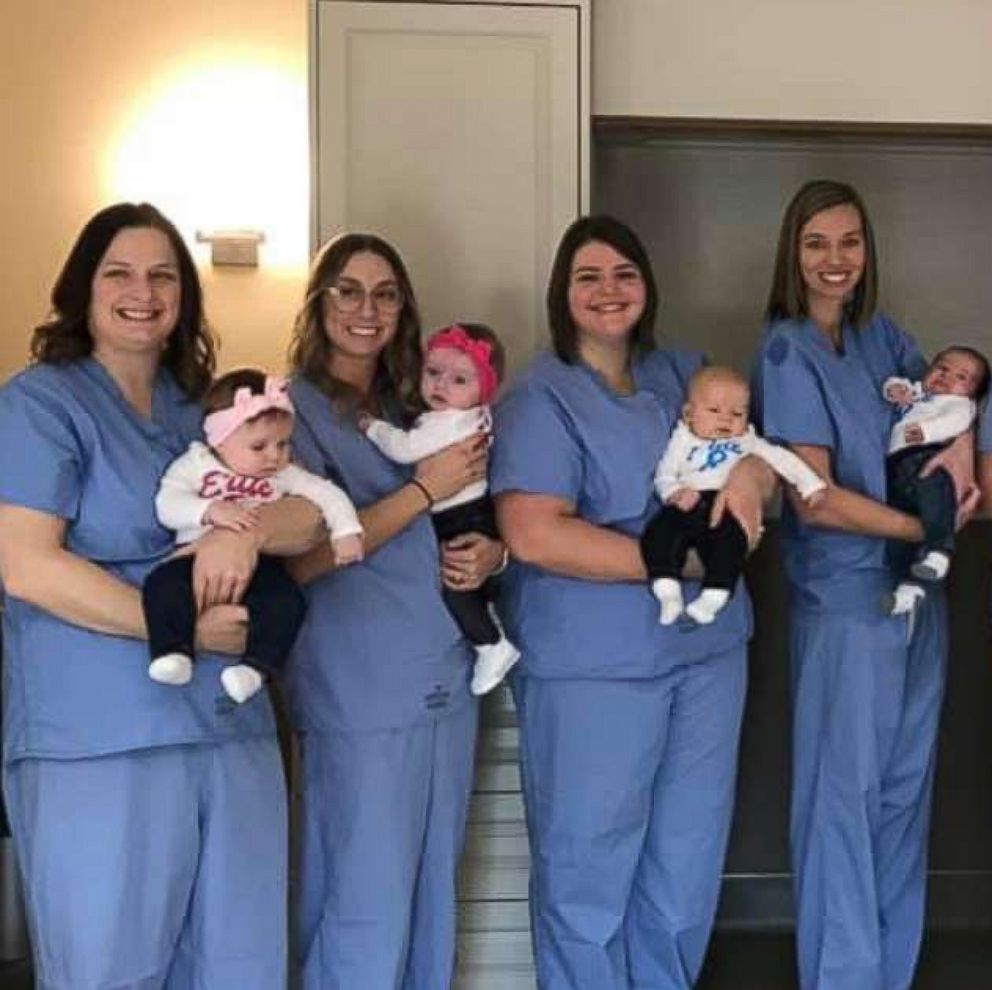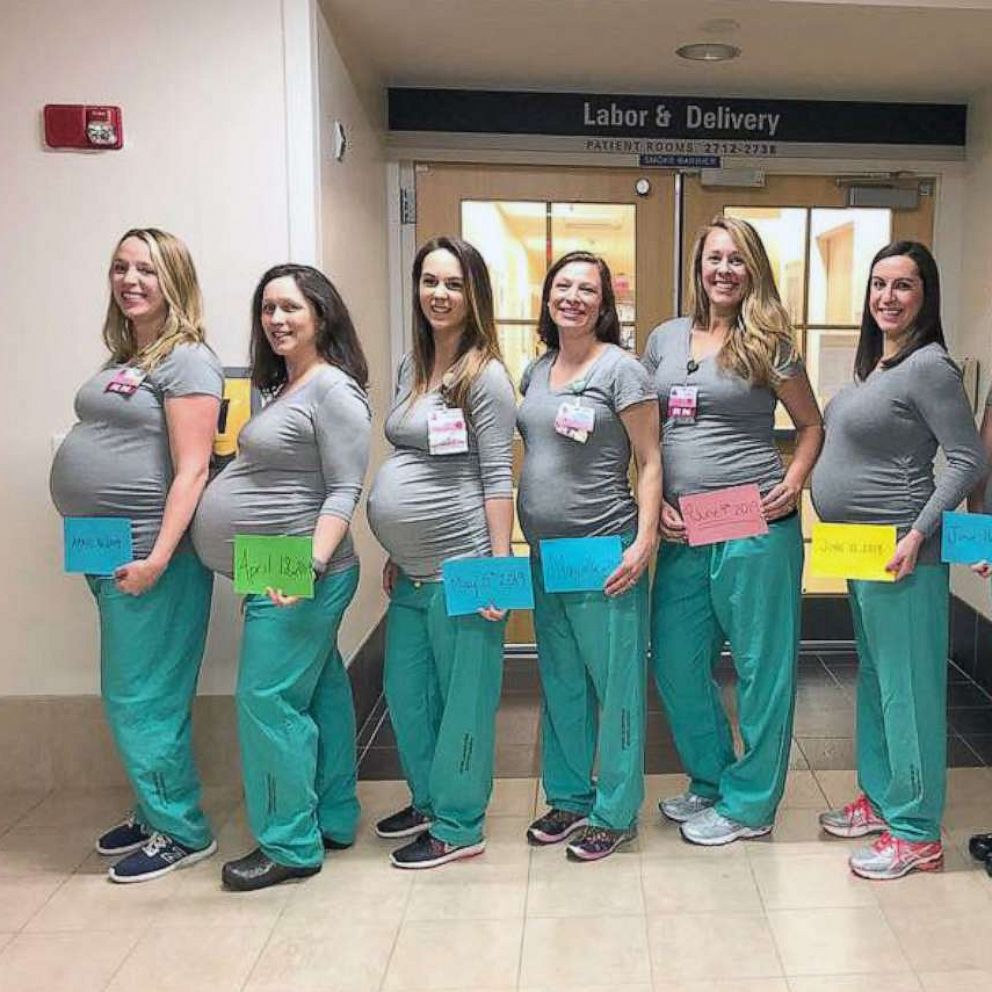11 labor and delivery nurses pregnant at Ohio hospital. What's behind these baby booms?
Doctors say it's a sign of a supportive workplace.
Miami Valley Hospital in Dayton, Ohio, is about to turn it up to 11.
Eleven nurses in the hospital's labor and delivery unit are pregnant at the same time.
The due dates for the nurses, one a gestational carrier, span in time from early May to late October. All 11 of the nurses plan to deliver at their employer, Miami Valley Hospital, which oversees about 4,000 deliveries per year.
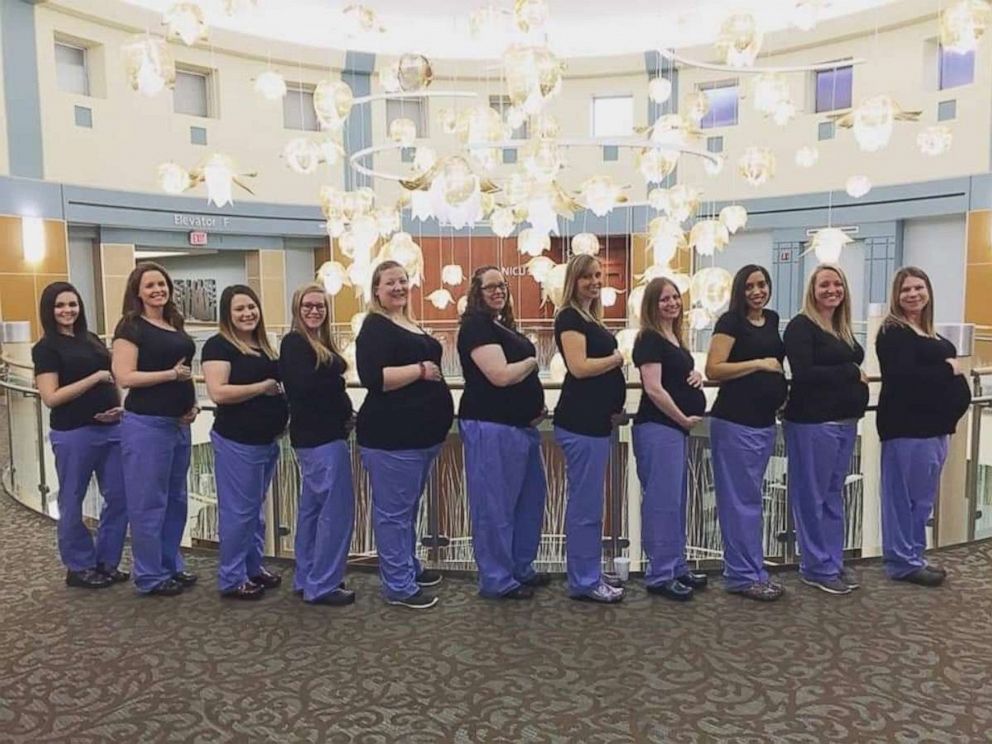
"Knowing that our coworkers are going to be there when we deliver is very comforting," said Lindsey Highley, who's due with her third child in May.
Jessica Piddock, due in July, described the baby boom at the hospital as "completely crazy," while Charlotte Phillips, due in May, called it "really exciting."
All three nurses said they and their pregnant coworkers are comparing notes, sympathizing with each other through difficulties and mostly just looking ahead to having 11 more kids on board.
"I think we all just really look forward to watching each other's children grow and getting motherhood advice as well," Highley said.
The baby boom at the Ohio hospital comes just weeks after nurses in Maine, teachers in Kansas and firefighters' wives in North Carolina each made headlines for the same thing: A large group of coworkers expecting babies at the same time.
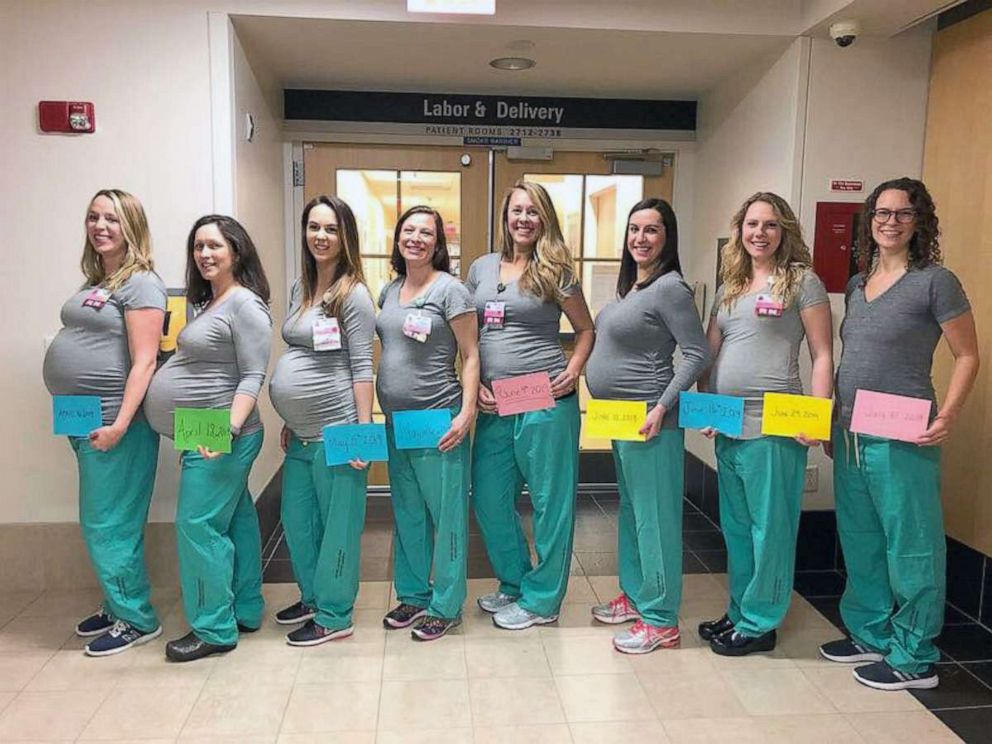

Earlier this year, a group of eight nurses in one obstetrics unit made headlines for giving birth over a span of five months.
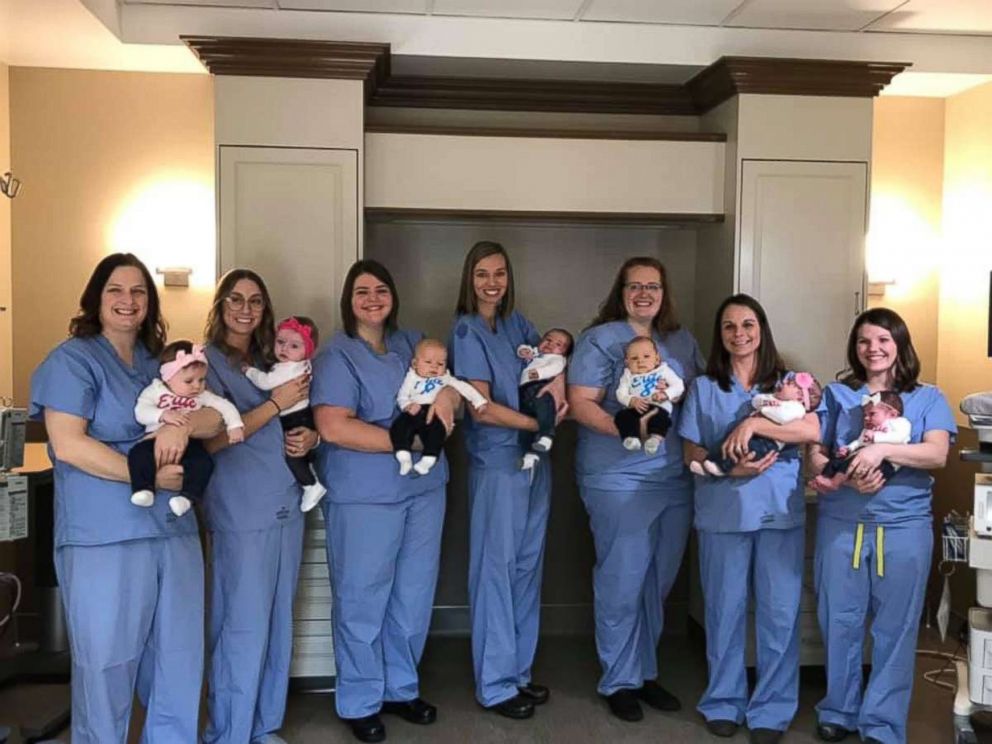
Last year, five coworkers at a doctor's office in Ohio were all pregnant at the same time too and, in Kentucky, seven dads and one mom in a police department welcomed new babies at the same time.
The question on everyone's minds is, Can there really be something in the water at these employers? Is there some way to medically explain the phenomenon?
The answer, doctors say, is no.
"More likely, I think it's people who are around the same age, going through the same thing, and they see people getting pregnant and being able to handle it," said Dr. Joanne Stone, director of maternal-fetal medicine at Mt. Sinai Hospital. "It's more of an atmospheric thing than there's any medical reason for it."
Stone said baby booms are more likely a sign that the women and men's employers are doing something right, in providing a positive workplace environment for expectant parents.
"Unfortunately, there are some where [pregnancy] is looked down upon," she added.
Dr. Richard Beckerman, chairman of the Department of Obstetrics and Gynecology at Sibley Memorial Hospital in Washington, D.C., agreed with Stone.
"I don't think it's a medical marvel as much as it's a really neat and fun-loving incident," he said. "It's a great human interest story and a nice thing to see."
And scientific or not, it's still beneficial for the expectant mothers, Stone and Beckerman added.
"I think it's always nice," Stone added, "to get that support and to be able to share how you feel and to feel validated -- to not feel so bad if you're tired and you need to put your feet up for a moment. Everyone understands. It's a positive feeling."
